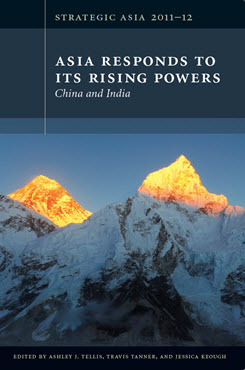The Rise of China and India
Challenging or Reinforcing Southeast Asia's Autonomy?
This chapter presents a comparative analysis of the impact of China’s and India’s rise on Southeast Asian regional autonomy and considers implications for the U.S.
EXECUTIVE SUMMARY
This chapter presents a comparative analysis of the impact of China’s and India’s rise on Southeast Asian regional autonomy and considers implications for the U.S.
MAIN ARGUMENT
Southeast Asian states seek to advance their national interests through the Association of Southeast Asian Nations (ASEAN) in order to promote regional autonomy and ASEAN’s centrality in the region’s security architecture. While welcoming the rise of the region’s two large neighbors, especially for the economic opportunities they offer, ASEAN states are also concerned with preserving regional autonomy. They seek an equilibrium in external relations based on engagement with China and India, the enmeshment of both rising powers in ASEAN-centric multilateral institutions, and the continuance of U.S. presence in the region. Although Southeast Asian states favor U.S. regional involvement, they do not want to be forced to choose between external powers.
POLICY IMPLICATIONS
- Regional states are concerned that a power shift in China’s favor is underway. The U.S. should continually demonstrate that it retains sufficient military power to deter Chinese assertiveness.
- As East Asia grows in economic strength, the U.S. must redouble its efforts to remain an attractive market and source of technological innovation.
- Southeast Asian states have become more proactive in promoting ASEAN’s centrality in the region’s security architecture. The U.S. would benefit from putting more diplomatic effort into consulting and coordinating with regional states in advance of ASEAN-related summits and ministerial meetings.
- India has ambitions to become a global power. The U.S. should support a greater, independent Indian role in Southeast Asian security affairs.
Strategic Asia
The Strategic Asia annual edited volume incorporates assessments of economic, political, and military trends and focuses on the strategies that drive policy in the region. Learn more about Strategic Asia.


